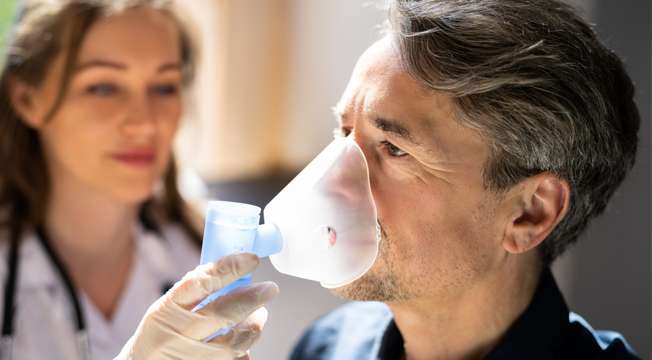It is the responsibility of all healthcare professionals to ensure that patients and their families are provided with personalised asthma advice and skills, which enable them to optimise their self-management. An overview of the extensive evidence base concludes that this improves clinical outcomes, reduces hospital admissions and exacerbations, and increases quality of life [7, 8].
Patient education is a key component of effective asthma self-management interventions. This is a core recommendation of the BTS/SIGN and Global Initiative for Asthma guidelines, which state that “all people with asthma should be offered self-management education and regularly reviewed by a health professional” and that “regular management strategies and an agreed personalised action plan are essential for effective asthma control”.
There are many different ways in which healthcare professionals can deliver asthma training, however, a number of factors must be taken into account to ensure that self-management is successfully implemented in routine care. This includes a whole-systems approach that considers patient education and resources, professional skills and motivational and organisational priorities and routines.
1. Patient and family needs: Some patients and families will require more frequent visits than others, perhaps due to a diagnosis or an unstable period of time in their lives. This can be a very challenging time for them, so it is important to provide them with more frequent support and education as part of their asthma self-management strategy.
2. Setting expectations: Some patients and families may have different priorities for the treatment they want to receive, so it is essential to set them clear expectations. This is a critical component of successful asthma self-management and it helps to build patient and family confidence.
3. Establishing a relationship: Asthma self-management involves a close relationship between the patient and their health professional. It is essential for the partnership to develop and evolve over time, and to meet the individual needs of each patient and their family.
4. Providing the patient with a written personalised asthma action plan: This is an essential component of successful self-management and should include a summary of regular management strategy, how to recognise deterioration and the action to take. This should be a written document, rather than a verbal one, and it must be regularly reviewed by the health professional.
5. Managing the risk of complications: Asthma is a long-term lung condition, and there are a number of risks associated with this, including bronchospasm and infections. This course teaches the knowledge and skills to identify the potential risks, and how to manage them effectively and safely.
6. Maintaining a healthy lifestyle: This course also teaches the knowledge and skills to promote a healthier lifestyle for the patient. This can include promoting exercise, drinking plenty of water and eating a balanced diet.
7. Reducing stress and coping strategies: The course also teaches the knowledge and skills to manage stress and coping techniques that are helpful in times of crisis. This can include relaxation techniques such as meditation, yoga or tai chi, breathing exercises and using positive thinking methods.
If You are Looking for Asthma Training in Melbourne, Get Touch with Young Medical School




